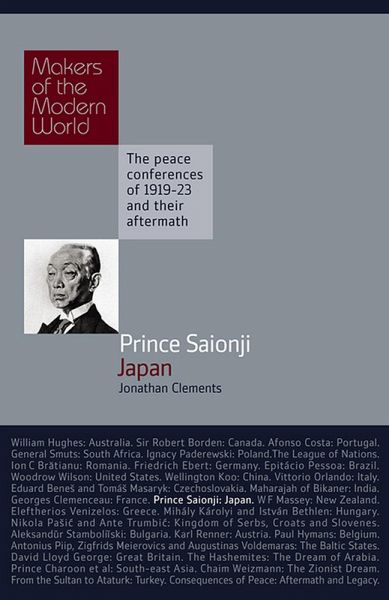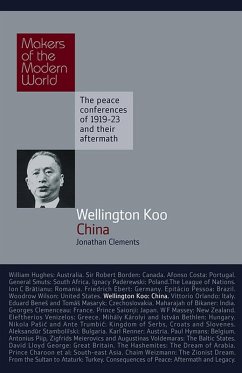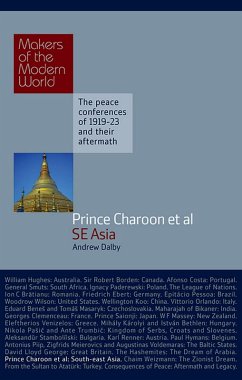
Prince Saionji (eBook, ePUB)
Japan

PAYBACK Punkte
10 °P sammeln!
Prince Saionji Kinmochi (1849-1940). The Japanese delegation at the Paris Peace Conference did not have the Japanese prime or foreign ministers with them as they had only just been elected and had plenty to do back home. The delegation was instead led by Prince Saionji, the dashing ''kingmaker'' of early 20th-century Japanese politics whose life spanned the arrival of Commodore Perry and his ''black ships'', the Japanese civil war, the Meiji Restoration, the Sino-Japanese War, the Russo-Japanese War, the First World War, the Paris Peace Conference and the Treaty of Versailles, and the rise of ...
Prince Saionji Kinmochi (1849-1940). The Japanese delegation at the Paris Peace Conference did not have the Japanese prime or foreign ministers with them as they had only just been elected and had plenty to do back home. The delegation was instead led by Prince Saionji, the dashing ''kingmaker'' of early 20th-century Japanese politics whose life spanned the arrival of Commodore Perry and his ''black ships'', the Japanese civil war, the Meiji Restoration, the Sino-Japanese War, the Russo-Japanese War, the First World War, the Paris Peace Conference and the Treaty of Versailles, and the rise of Japanese militarism. Unlike many of the conservatives of his day, Saionji was a man with experience of international diplomacy and admiration for European culture. Brought up in the days of the last Shogun, he became an active supporter of Japan''s new ruling regime, after the Shogun was overthrown in a civil war, and a leading figure in the post-Restoration reform movement. In 1869 he founded the institution that would become the Ritsumeikan University - literally, ''The place to establish one''s destiny''. He was sent to France for nine years to investigate Western technology and philosophy, and served for a decade as a Japanese ambassador in Europe. Returning to Japan, he served twice as Minister of Education and later became prime minister before resigning to become a revered elder statesman. Japan entered the First World War on the Allied side, seizing German possessions in China and the Pacific. In the closing days of the war, Japanese military forces participated in the Siberian Intervention - an American-led invasion of eastern Russia against Communist insurgents. At the Conference Saionji''s presence was initially regarded by the Japanese as a sign that Japan had become a fully-fledged member of the international community and accepted on an equal footing with the Western Powers. His delegation introduced a controversial proposal to legally enshrine racial equality as one of the tenets of the League of Nations. The Japanese were also keen to grab colonies of their own, and went head-to-head with the Chinese delegation over the fate of the former German possession of Shandong. When Shandong was ''returned'' not to China but to its Japanese occupiers, riots broke out in China. Despite Saionji''s statesmanship and diplomacy, the Treaty of Versailles was regarded by many Japanese as a slap in the face. Saionji''s influence weakened in his last years, while his party was dissolved and amalgamated with others.
Dieser Download kann aus rechtlichen Gründen nur mit Rechnungsadresse in A, B, BG, CY, CZ, D, DK, EW, E, FIN, F, GR, HR, H, IRL, I, LT, L, LR, M, NL, PL, P, R, S, SLO, SK ausgeliefert werden.













